ICOM and the Organising Committee of Kyoto 2019 are grateful for the Getty Foundation’s support to bring participants from countries with emerging economies to attend the 25th Triennial General Conference.
Learn more and apply here.
ICOM and the Organising Committee of Kyoto 2019 are grateful for the Getty Foundation’s support to bring participants from countries with emerging economies to attend the 25th Triennial General Conference.
Learn more and apply here.
During the International Symposium ‘Activities of University Museums and their Significance’, organised by the University Museum Association of Kyoto, at the end of last month, Kyoto University Museum and National Cheng Kung University Museum (NCKU), Taiwan, signed their second MoU to extend cooperation for another five years.
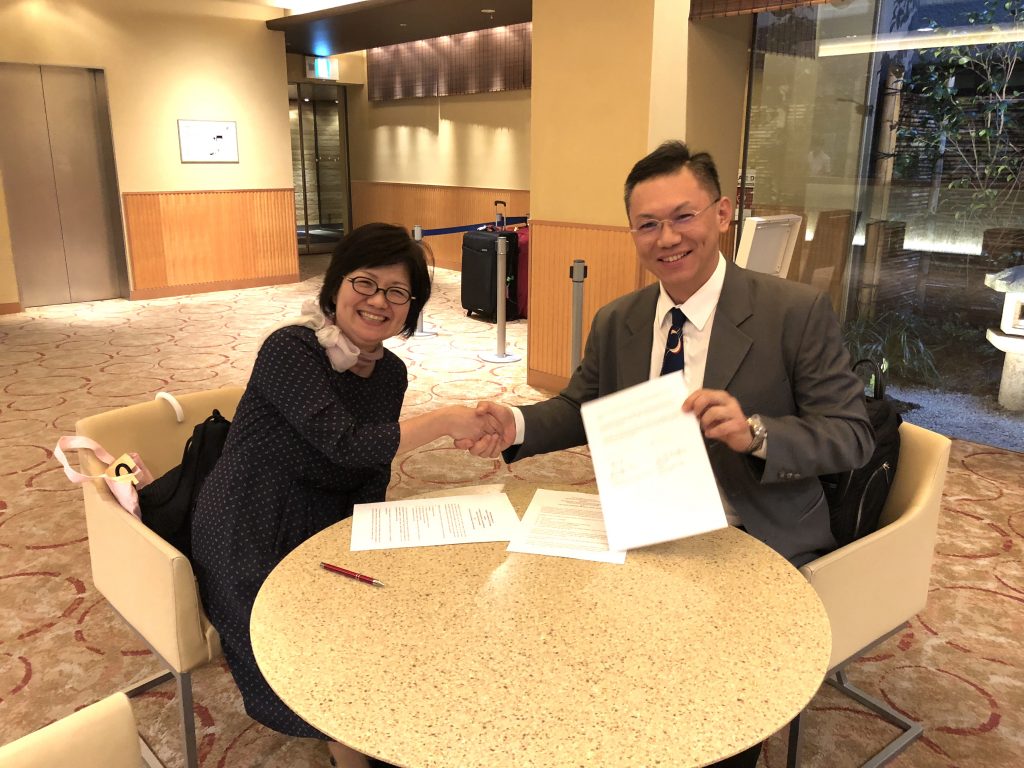
NCKU Museum visited Kyoto University Museum unofficially in 2008 for the first time after its own establishment in 2007 in order to learn from the experience of Kyoto. The first MoU between Kyoto University Museum and NCKU Museum was signed in 2013. Since then, they have been cooperating in collection research, academic symposiums, and management experience exchange. A recent cooperation is a collection research by a curator from NCKU Museum to study the collection of Taiwan’s aboriginals at Kyoto University, which will be exhibited in Taipei with a special traveling exhibition of the 14 members of University Museum Association of Kyoto in December 2019.
With this renewed MoU, NCKU Museum and Kyoto University Museum will soon cooperate in the planning of a traveling exhibition to Taiwan in 2020.
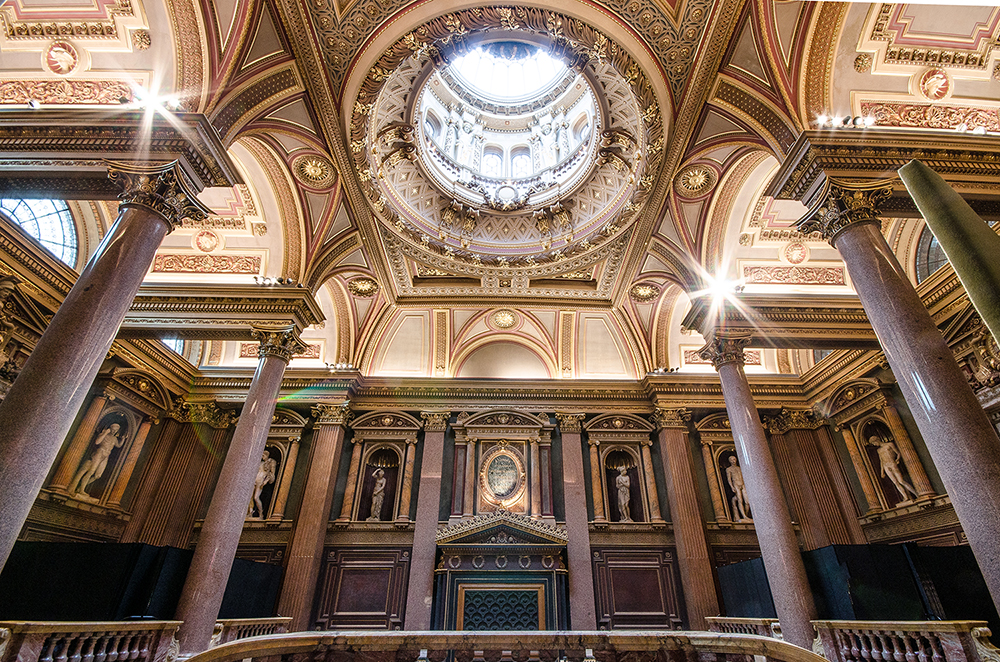
University of Cambridge, UK
The Fitzwilliam Museum Continue reading → “COLLECTION OF THE MONTH: THE FITZWILLIAM MUSEUM, CAMBRIDGE”
UMAC is delighted to inform that the nominations for the UMAC Award 2019 are now open.
Deadline: 31 December 2018, 5 PM London time.
See more information here.
UMAC President, Marta Lourenço, recently signed two significant agreements in Shanghai, spin offs of UMAC’s partnership with the Qian Xuesen Library and Museum of Shanghai Jiao Tong University since 2016.
The first is for the development of a university museum app for iOS and Android (pilot version).
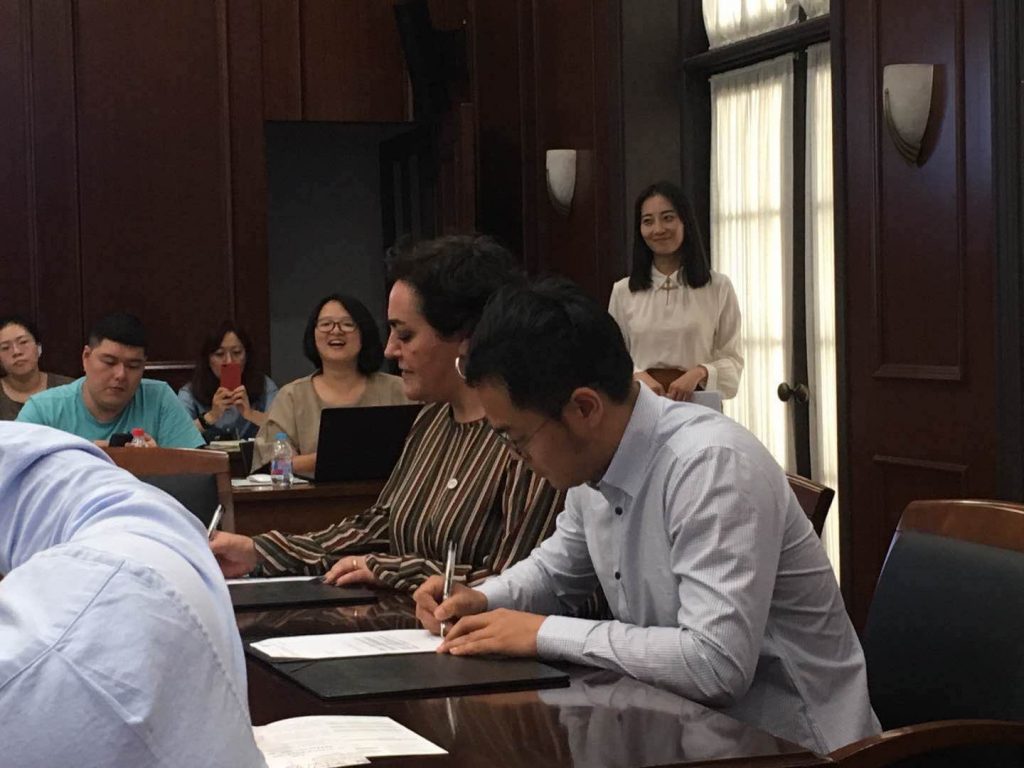
This is a partnership with The Electronic Science and Technology Museum (ESTM) of the University Electronic Science and Technology (UESTC) in Chengdu. This is a university museum, and the first comprehensive electronic science and technology museum in China. UMAC President Marta Lourenco says “We are committed to increasing the visibility of university museums and collections worldwide. With the ubiquity of hand held devices these days, this development will make UMAC’s world-wide database more accessible to a broader global audience.” “We believe China’s Electronic Science and Technology Museum, as a university museum are excellent partners for this enterprise. We are delighted to be working with them. It will bring data about university museums to everyone’s phone.”
The second is the translation of Journal editions into Chinese. This is an agreement with Shanghai University Museum. UMAC has been publishing a journal since 2001. This agreement will make the University Museums and Collections Journal (UMACJ) available to a new and large sector of museum practitioners and university administrators.
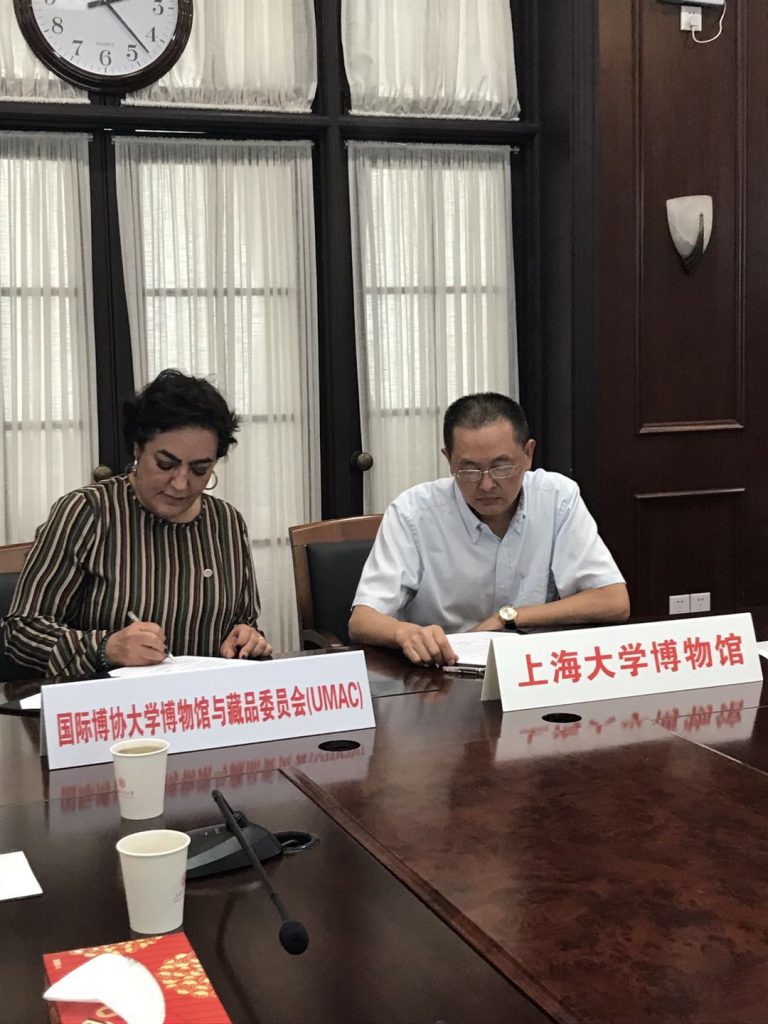
UMACJ Editor Andrew Simpson says “We are working towards making UMACJ the primary academic source for the emerging speciality of university museum work. This agreement will engage Chinese university museum curators and scholars in the work of UMAC”.
Read the full media release.
Opuscula Musealia, an international journal established in 1986 by the Museum of the Jagiellonian University in Krakow, Poland, is inviting submissions of manuscripts for an upcoming issue, devoted to museum collections. Articles are welcome on (although not exclusively):
– history of collecting and collections
– historical and modern collecting practices
– forgotten or lost collections
– intangible collections and how to present them
– collecting as a social phenomenon.
– collections display in museum (e.g. how to modernize them)
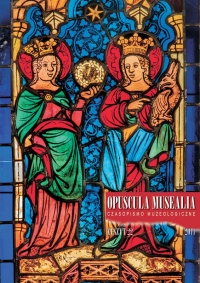
Opuscula Musealia is an open journal that publishes high-quality articles preferably in English, Polish (German and French are also possible) in all areas of:
Deadline: March 31st 2019
Submit your manuscript(s) to Maria Natalia Gajek, curator and editorial secretary: opuscula.musealia@uj.edu.pl
Read more here.
Jagiellonian University Museum Collegium Maius
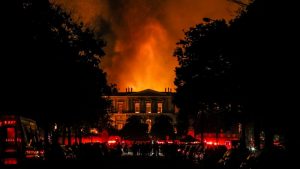
Museums are the custodians of the world’s artistic, cultural, and scientific heritage. They hold the evidence of human civilization, culture, creativity, imagination, and knowledge in their collections. Museums are institutions of research, investigation, inquiry, and learning.
A ravaging fire engulfed the Museu Nacional, a museum at the Federal University of Rio de Janeiro, Brazil. The incalculable loss of the collections of the largest natural history museum in Latin America has brought the fragility of many museums to the world’s attention.
At the National Museum in Rio de Janeiro, and in other university museums and collections across the world, irreplaceable objects, specimens, and repositories of knowledge have been lost to preventable disasters. The potential for future catastrophes is enormous as museum facilities age and economic stresses afflict nations and academic institutions. Financial pressure often results in the neglect of the infrastructure in museums.
The devastating fire in Brazil in September 2018 calls attention to the potential for the dire consequences of lack of attention to basic fire prevention systems. To delay any primary disaster prevention infrastructure system seems inexcusable if governments and institutions have any care at all for the preservation of the heritage of their country or institution.
As well as preventing the destruction of physical property, decision makers for governments and universities should be aware of the basic needs for preservation of collections and archives. Physical copies stored offsite are cumbersome and space intensive. A digital database of the collections and digital records of archives and research stored on several offsite servers will preserve at least some records of the accumulated knowledge and a record of the destroyed collections.
Governments and institutions can prevent the catastrophic loss of knowledge if they invest a relatively modest sum in basic disaster preparedness systems in museums and other areas where collections are held and invest in digital storage of collections records and other archives.
UMAC, the International Council of Museums committee on University Museums and Collections, reiterates its full solidarity and support to the Museu Nacional and calls upon national and academic leaders to take responsibility for the preservation of the heritage at risk in their museums. The investment is relatively modest compared to the potential for disaster that exists when these needs are neglected. The inattention of leaders to their responsibilities for the protection of museums and collections and the resources they hold leads to the loss of some of humankind’s greatest treasures–artistic, cultural, and scientific. The knowledge of humankind’s history is at risk. UMAC calls upon leaders—national and academic— to take on the responsibility that is theirs, that is, to protect these treasures.
UMAC Board, 8 September 2018
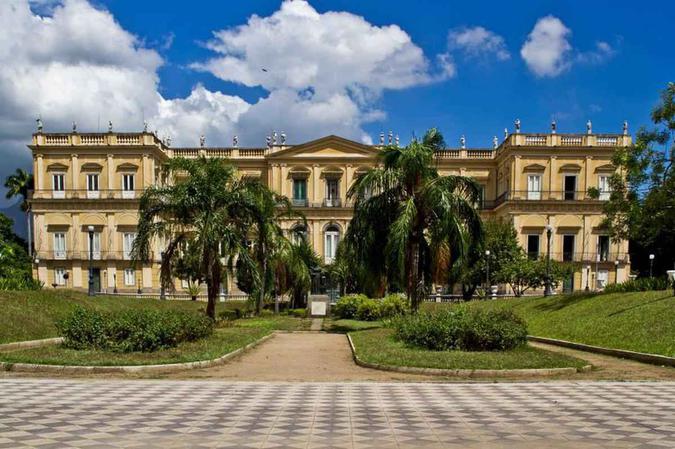
Federal University of Rio de Janeiro, Brazil
Museu Nacional
Continue reading → “COLLECTION OF THE MONTH: MUSEU NACIONAL, RIO DE JANEIRO”
OPEN LETTER TO THE MINISTERS OF EDUCATION AND CULTURE OF BRAZIL
To:
Rossieli Soares da Silva
Minister of Education
Sérgio Sá Leitão
Minister of Culture
Dear Ministers, Your Excellencies,
As we saw the collection of the Museu Nacional destroyed in what has already been widely recognized an “announced tragedy”, we are writing to call your attention to the problems of university museums in Brazil, expecting effective action before other “announced tragedies” will take place.
The Museu Nacional is a university museum, characterized by the “principle of inseparability between teaching, research and extension”, as established in Article 207 of the Brazilian Constitution. In Brazil, there are thousands of university museums, whose collections encompass cultural assets in all areas of the sciences, arts, humanities and technology, as well as invaluable books and manuscripts.
These museums and their collections preserve “tangible and intangible assets related to higher education institutions and their institutional bodies, as well as to the academic community of professors, researchers and students, and the social and cultural environment that shapes this heritage”(EUROPEAN UNION, 2005). As cultural assets, they must be protected and promoted by the Brazilian State, as shared responsibility with the Union and all entities of the Brazilian Federation, as expressed in articles 23 and 215 of our Constitution.
Like many university museums, the Museu Nacional is linked to a federal entity, which in turn is subordinate to the Ministry of Education. However, this Ministry does not allocate in its budget dedicated funds for museums, collections or cultural heritage under its responsibility, nor does it have any control over how many museums and cultural heritage is administered on a daily basis by Brazilian universities, not even those belonging to federal institutions, as is the case of the Federal University of Rio de Janeiro (UFRJ).
The Ministry of Culture, the Brazilian Institute of Museums (IBRAM) and the Institute of National Historical and Artistic Heritage (IPHAN), responsible for the promotion and protection of the Brazilian cultural heritage, do not have specific lines of action for university museums either, which historically have been outside its sphere of action. The budget of the Ministry of Culture barely supports the maintenance of its own operating structures.
In this dysfunctional scenario, university museums are absolutely invisible. They rely almost exclusively on the internal politics of their university for the allocation of resources essential to their existence.
Both the Museu National and the smaller university museums all across Brazil are increasingly dependent on project funding. However, firefighting systems and the maintenance of buildings and collections should not be dependent on project funding. Brazil has just seen the sad result of public management anchored exclusively on project funding: the 21 million reais raised by the Museu Nacional through BNDES did not solve the problem of the lack of investment in basic infrastructure and the daily maintenance of institutions.
It is impossible to manage museums and preserve our cultural heritage only with project funding. How many university museums in Brazil will have to burn, be flooded, stolen from or simply face closure before the scale of their daily tragic situation becomes clear to everyone!?
In view of the above, the entities and citizens listed below express their solidarity with the Museu Nacional and the Federal University of Rio de Janeiro and request from Your Excellencies:
1. Immediate attendance to the emergency demands requested by the direction and technical team of the Museu Nacional, in order to safeguard those parts of the Museum and its collections that were not consumed by the fire;
2. Creation of a permanent funding program in the annual budget of the Ministry of Education to guarantee direct resources for the maintenance of university museums in federal institutions;
3. Establishment of a permanent funding program in the annual budget of the Ministry of Culture to support university museums at all administrative levels;
4. Composition of a permanent institutional structure to support university museums in Brazil, encompassing the government and civil society, both at ministerial level and in federal institutions.
Hoping that Your Excellencies will support the reconstruction of the National Museum and help avoid further tragedies in Brazilian university museums, we the undersigned:
Network of Teachers and Researchers in Museology
Brazilian Permanent Forum of University Museums
Brazilian Network of University Collections and Museums